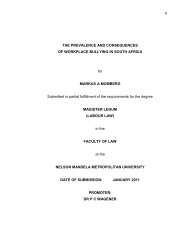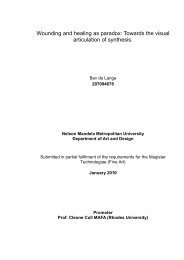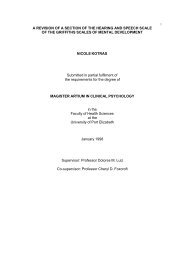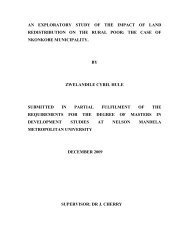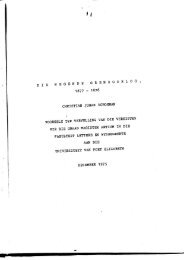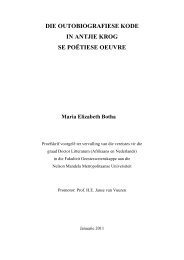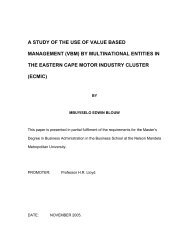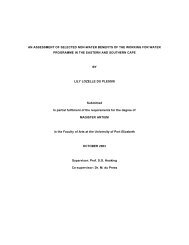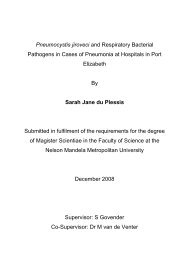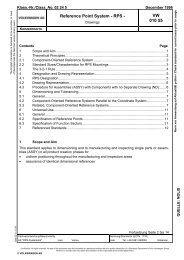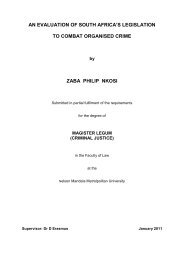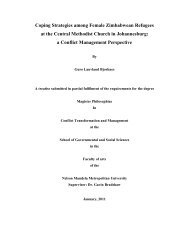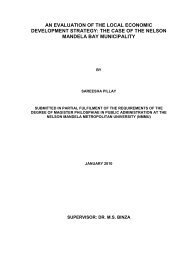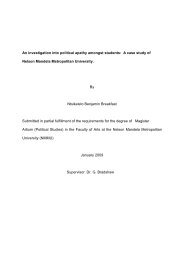Elaine Browne.pdf - Nelson Mandela Metropolitan University
Elaine Browne.pdf - Nelson Mandela Metropolitan University
Elaine Browne.pdf - Nelson Mandela Metropolitan University
You also want an ePaper? Increase the reach of your titles
YUMPU automatically turns print PDFs into web optimized ePapers that Google loves.
A critical observation by Christie et al. (2007, 105) is that, in these schools, leadership was clear.<br />
This was either “in the person of the principal and sometimes dispersed in SMTs, HODs, or<br />
teachers themselves”.<br />
Taylor (2009, 17) also highlights the importance of leadership during times of school and<br />
curricular reform. He divides school management into two main functions which leaders of the<br />
school and teachers share namely, “instructional leadership [which] gives priority to the<br />
principal” and “transformational leadership” which includes the leading teachers and<br />
management teams at schools. Such leadership assumes a division of labour within the<br />
schooling system and allocates functions according to where and by whom they are best<br />
performed by (Taylor 2009, 18). This kind of leadership creates conditions under which teachers<br />
can work effectively and encourage good school performance amongst learners. Arends and<br />
Phurutse (2009, 39) also advise school leaders to adopt a “supportive and caring management”<br />
style in order to encourage their teachers to engage with the change. Taylor (2009, 20) believes<br />
that when principals and leading teams are focused there are responsibility, shared duties<br />
amongst teachers, a culture of hard work and high value attached to good performance. The<br />
opposite is, principals who do not exercise a tight time management programme and who put<br />
the blame of failure on circumstances outside their control like the unreliability of public<br />
transport, a lack of teacher commitment or union interference. These principals fail in taking<br />
responsibility. They do not exercise control over their work environment. As a result they do<br />
not take ownership of curriculum management and implementation (Taylor 2009, 19).<br />
9



